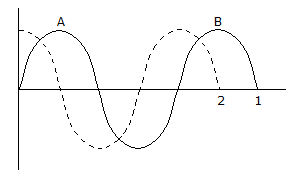Civil Engineering :: Elements of Remote Sensing
-
The basic requirement of any sensor system, is :
-
The basic requirement of any sensor system, is :
-
Which one of the following helps to identify the objects on the earth surface ?
-
The spectral region of the electromagnetic radiation which passes through the atmosphere without much attenuation is known as:
-
Which one of the following statements is correct?
-
The remote sensing techniques applied for the earth's surface features, is generally confined to the following wave lengths :
-
The value of energy quantum for radiation of any frequency is proportional to :
-
A perfectly black body :
-
Pick up the correct statement from the following :
|
A.
When the electric field oscillates in the direction of the electric vector, a plane polarised wave is formed. |
|
B.
When the electric vector is in the plane of incidence, vertical polarisation is formed. |
|
C.
When the electric vector is at right angles to the plane of incidence, horizontal polarization wave is formed. |
|
D.
The plane containing the incident ray and normal to the reflecting surface at the point of incidence is called the plane of incidence. |
|
E.
All of these |


 Whatsapp
Whatsapp
 Facebook
Facebook


